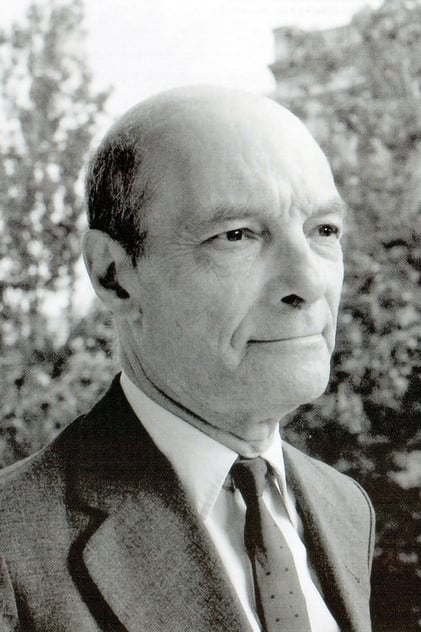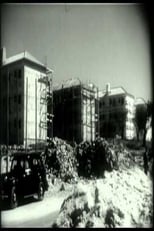

António Lopes Ribeiro
Born: April 16, 1908
Died: April 14, 1995
in Lisbon, Portugal
Died: April 14, 1995
in Lisbon, Portugal
Director, journalist, and producer, António Lopes Ribeiro (1908-1995) was a central name in the history of Portuguese cinema in the first half of the 20th century. Movie critic since the late 1920s, he supported the European cinematographic avant-gardes and the aesthetical and technical renewal of Portuguese cinema. He directed his first film, Bailando ao sol, in 1928 and took part in the shooting of J. Leitão de Barros film’s Nazaré, praia de pescadores (1929), Lisboa, Crónica Anedótica and Maria do Mar (1930). Shortly before that, he undertook a long journey to the great movie studios of Paris, Berlin and Moscow, where he became up to speed with the most recent techniques and tendencies, and where he also met Clair, Renoir, Lang, Pabst, Eisenstein and Vertov. His first sound film was Gado Bravo (1934), made with several Jewish film actors and technicians that had just escaped from Hitler’s Germany. Ribeiro’s first big propaganda film for the New State was A Revolução de Maio (The May Revolution, 1937), whose script he wrote with António Ferro, the founder and director of the Secretariado da Propaganda Nacional (National Propaganda Office/SPN). The following year, he accompanied the head of the state, President Óscar Carmona, in a trip to the Portuguese colonies in Africa, shooting topical footage that would be used in several documentaries, as well as in his second propaganda feature film, Feitiço do Império (1940). Also in 1938, Ribeiro began producing for SPN the New State’s first newsreel, Jornal Português, which would last until 1951. With his production and distribution company Sociedade Portuguesa de Actualidades Cinematográficas (SPAC), he produced and directed many propaganda documentaries commissioned by the New State, thus earning the reputation of the regime’s official filmmaker and reinforcing his influence in the State-sponsored Sindicato Nacional dos Profissionais de Cinema (National Union of Cinema Professionals). In 1941, he founded Produções António Lopes Ribeiro, a production company that released famous comedies such as O Pai Tirano (1941), O Pátio das Cantigas (1942, directed by his brother, Francisco Ribeiro), or A Vizinha do Lado (1945); Manoel de Oliveira’s first feature film, Aniki-Bóbó (1942); or historical dramas such as Amor de Perdição (1943), Frei Luis de Sousa (1950) and O Primo Basílio (1959). Until 1974, Ribeiro produced or directed dozens of propaganda documentaries and newsreels. Between 1957 and 1974 he was also the author and host of a very popular TV show about the history of cinema titled “O Museu do Cinema” (“The Cinema Museum”).
Movies for António Lopes Ribeiro...

Title: Lusitanian Illusion
Character: Self (archive footage)
Released: April 22, 2010
Type: Movie
Images and sounds expose the duality of Portugal during the days of WW2: a peaceful, god-loving, rural country, providing an escape route for over one hundred thousand European refugees to the Americas; and a political and cultural elite that disguised their Nazi inclinations just enough to play its neutral role in international politics.


Title: Chuva na Areia
Character: Padre Abel Correia
Released: January 7, 1985
Type: TV


Title: Lisboa de Hoje e de Amanhã
Character: Narrator
Released: January 1, 1948
Type: Movie
Recent population growth in the capital leads to an ambitious development plan, involving public and private initiative as documented here, pinpointing over 60 locations (streets, roads, parks, schools) being modernized or built anew. The narrative and soundtrack are grandiloquent, in the propaganda style required by the Producer (the Municipal Council of Lisbon, then directly dependent of the national government), but the images and data are now of historical relevance.
